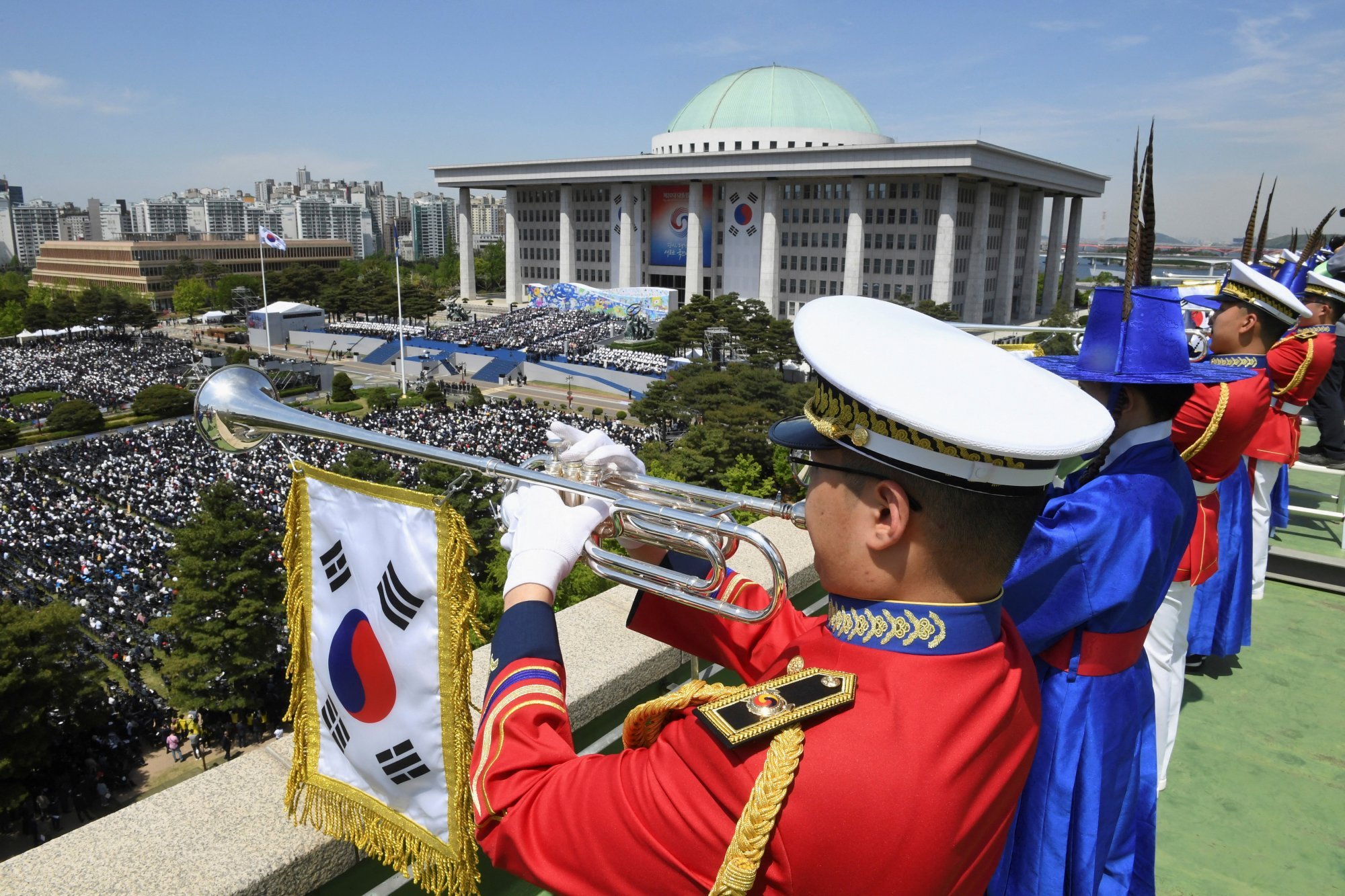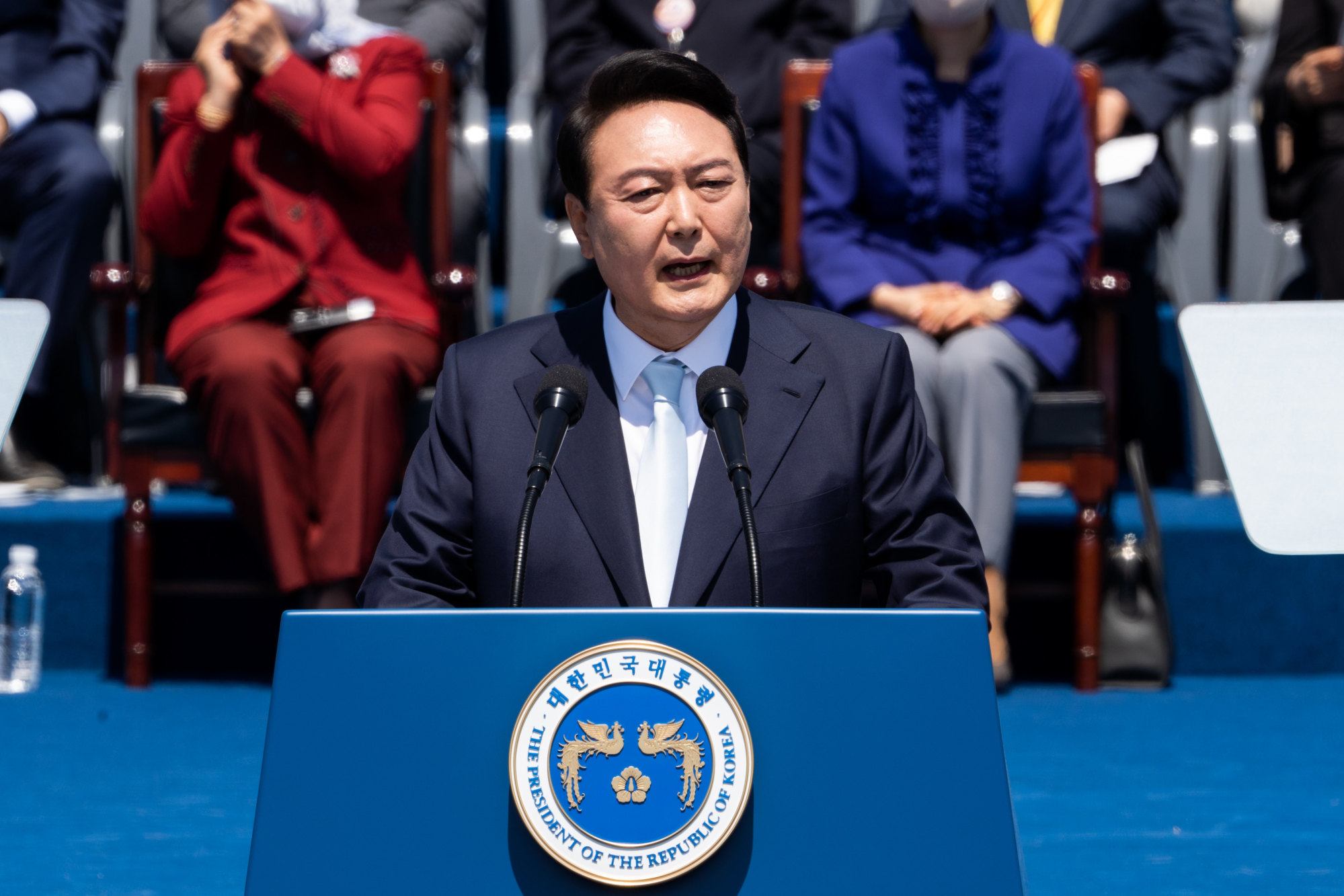
South Korea’s Yoon Suk-yeol inaugurated as new president, suggests ‘audacious plan’ for denuclearised North Korea economy
- Former president Lee Myung-bak also promised to help the North’s economic growth if it gave up its nuclear drive, but that suggestion was ignored by Pyongyang
- Yoon has criticised the former Moon administration for bowing to China and said Seoul should align its international policy more closely with the US
“It is incumbent upon us to take on a greater role befitting our stature,” he said noting South Korea is the world’s 10th largest economy.

North Korea’s nuclear weapons programme is a “threat not only to our security and that of Northeast Asia”, he said, adding “the door to dialogue will remain open” for a peaceful settlement of the dispute.
Kim Jong-un’s ‘possible’ nuclear test in focus as China envoy visits Seoul
“If North Korea genuinely embarks on a process to complete denuclearisation, we are prepared to work with the international community to present an audacious plan that will vastly strengthen North Korea’s economy and improve the quality of life for its people,” Yoon said.
This commitment echoes former conservative president Lee Myung-bak’s promise that the South would help with the North’s economic development should it give up its nuclear drive, a suggestion that fell on deaf ears.
Yoon’s security advisers include key holdovers from Lee’s government which saw inter-Korean ties hit rock bottom, with troops clashing on the sea border and inter-Korean exchanges coming to a halt.

The change in leadership in the South comes as the North once again tested what appeared to be a submarine launched ballistic missile on Saturday, marking its 14th missile launch in 2022, including its largest-ever ICBM test in March.
Kim Jong-un’s ‘possible’ nuclear test in focus as China envoy visits Seoul
The Yoon government said it will pursue a “complete and verifiable denuclearisation” of North Korea in a manner based on “principles” – no unrequited conciliatory gestures such as the easing of sanctions to encourage the North to return to dialogue, a suggestion made by the Moon government but rejected by Washington.
“China has repeatedly conveyed its requests for the North to desist from ICBM and nuclear tests. Russia did likewise” but the North turned a deaf ear to the pleas, Park told the Chosun newspaper.
China also supplies the North with half a million tons of oil every year, a lifeline for its tattered, sanctions-hit economy.

“China is seriously concerned that following Yoon’s election, Sino-South Korea ties could suffer and Seoul would join the US campaign to contain China in the region,” Cheong told the Post.
South Korea eyes new missile shield to replace US system that angered China
Kim Tae-hyo, a top security adviser to Yoon, said the new government will continue with a “circumspect approach” concerning the THAAD issue, adding the matter would be “reviewed in accordance with the security situation”.
Domestically, Yoon, who barely defeated liberal candidate Lee Jae-myung by a margin of just 0.7 per cent, faces a hostile National Assembly which is dominated by the liberal Democratic Party.
His government got off to a bumpy start, with the National Assembly boycotting prime minister nominee Han Duck-soo on grounds of conflicts of interests as he has alternated between government posts and lucrative adviser’s roles at a law firm.

In South Korea, prime minister is the only Cabinet post that requires parliamentary approval.
“Under these circumstances, people’s expectations for the new government are modest at best as Yoon, who lacks experience as a top administrator as he spent most of his career time as a state prosecutor,” he added.

